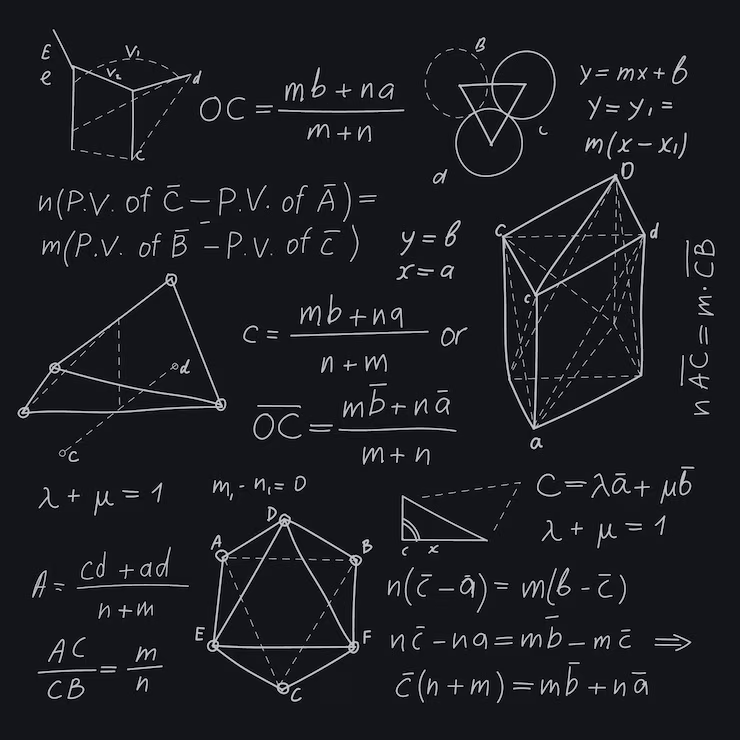
The Different Types of Algebra: A Comprehensive Overview
Algebra is a cornerstone of mathematics, acting as the bridge between arithmetic and more advanced mathematical concepts.
It involves working with symbols, numbers, and variables to solve equations and uncover relationships between quantities.
However, algebra is not just one uniform field—there are several branches, each with its distinct principles, methodologies, and applications.
In this article, we’ll explore the main types of algebra, from the foundational concepts in elementary algebra to the abstract nature of modern algebraic structures.
1. Elementary Algebra
Elementary algebra is the most basic and essential form of algebra, typically introduced at the high school level.
It deals with:
Variables and Constants: Variables are symbols (like x, y, or z) that represent unknown quantities, while constants are fixed values.
Operations: The basic operations of addition, subtraction, multiplication, and division are applied to algebraic expressions.
Linear Equations and Inequalities: These involve expressions where the variable is raised to the first power, such as 2x + 5 = 9. Solving for x gives us the solution to the equation.
Polynomials: Elementary algebra also covers operations with polynomials (expressions with multiple terms, like 3x^2 + 2x – 7).
Factoring and Simplification: Simplifying expressions and factoring them into products of simpler expressions are key skills in this area.
Applications: Elementary algebra forms the foundation for more complex mathematics and is applicable in daily life, finance, basic problem-solving, and introductory science.
2. Abstract Algebra (Modern Algebra)
Abstract algebra, also known as modern algebra, is a more advanced branch that studies algebraic structures such as groups, rings, and fields. It focuses on the following:
Groups: A group is a set equipped with a single operation that satisfies certain axioms, like closure, associativity, identity, and invertibility. For example, the set of integers under addition forms a group.
Rings: Rings extend the concept of groups by adding a second operation, usually multiplication, and examining how these operations interact.
Fields: Fields are algebraic structures where both addition and multiplication (and their inverses) are defined and behave in a predictable manner. The set of real numbers is a common example of a field.
Applications: Abstract algebra is crucial in theoretical mathematics, cryptography, coding theory, and the study of symmetry in physics and chemistry.
3. Linear Algebra
Linear algebra deals with vectors, vector spaces, and linear equations. It is primarily concerned with:
Vectors and Vector Spaces: Vectors are quantities that have both magnitude and direction. Linear algebra studies vector spaces, which are collections of vectors that can be scaled and added together.
Matrices: Matrices are rectangular arrays of numbers that represent systems of linear equations or transformations.
Determinants and Eigenvalues: Determinants help solve systems of linear equations, while eigenvalues and eigenvectors are key concepts in transformations and stability analysis.
Systems of Linear Equations: Linear algebra techniques, like Gaussian elimination, help solve multiple equations with several variables.
Applications: Linear algebra is extensively used in computer science (machine learning, graphics), engineering (control systems, structural analysis), economics (input-output models), and more.
4. Boolean Algebra
Boolean algebra is a specialized branch of algebra that deals with binary variables and logical operations. It uses:
Binary Values: Variables take on values of either 0 (false) or 1 (true).
Logical Operations: Operations include AND, OR, and NOT, which correspond to multiplication, addition, and negation, respectively.
Truth Tables and Logic Gates: Boolean algebra is used to build and analyze truth tables, which are fundamental in digital circuit design.
Applications: Boolean algebra is essential in computer science, particularly in digital electronics, programming, and designing logic circuits.
5. Commutative Algebra
Commutative algebra focuses on commutative rings, which are rings where the multiplication operation is commutative (i.e., a × b = b × a). This branch studies:
Ideals: Subsets of rings that have special closure properties under ring operations.
Ring Homomorphisms: Structure-preserving maps between rings.
Polynomial Rings: These play a significant role in understanding algebraic geometry.
Applications: Commutative algebra is foundational for fields like algebraic geometry, where the geometry of curves, surfaces, and higher-dimensional spaces is studied using algebraic techniques.
6. Universal Algebra
Universal algebra is a highly abstract branch that studies algebraic systems in general, without focusing on any specific structure. It involves:
Algebraic Structures: The study of common properties across structures like groups, rings, lattices, and algebras.
Varieties and Equational Logic: Understanding classes of algebraic structures defined by particular equations and logical formulas.
Applications: Universal algebra is a theoretical field with applications in logic, category theory, and theoretical computer science.
7. Linear Algebra over Finite Fields
This specialized area merges concepts from linear algebra and finite fields (fields with a limited number of elements). It is used in:
Coding Theory: Error-correcting codes, such as those used in data transmission and storage, rely on linear algebra over finite fields.
Cryptography: Modern encryption techniques like RSA involve algebraic structures over finite fields.
Conclusion
Algebra is a vast and diverse field with applications ranging from basic problem-solving to advanced theoretical research.
The different types of algebra—from the foundational concepts of elementary algebra to the abstract principles in modern algebra—each serve unique roles in mathematics and its real-world applications.
Whether you’re interested in the logical precision of Boolean algebra or the intricate structures of abstract algebra, understanding the breadth of algebraic disciplines is essential for both academic growth and practical innovation.


